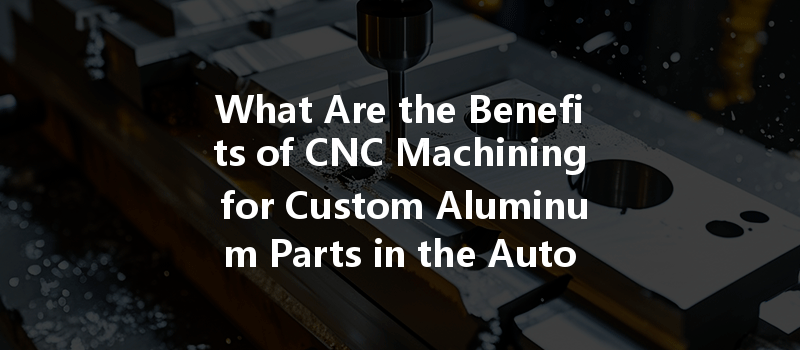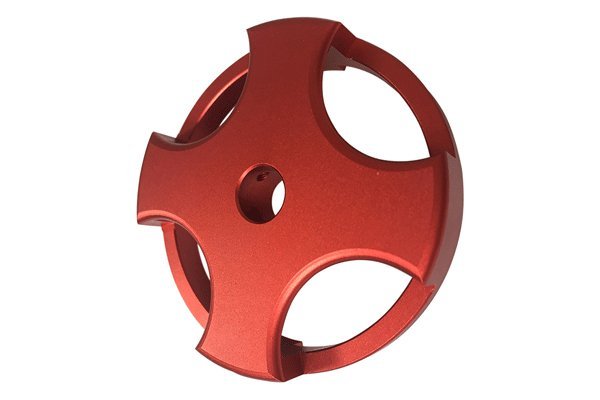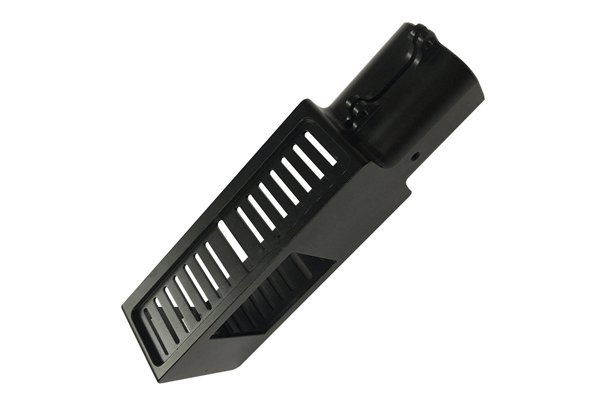Did you know that approximately 40% of the entire manufacturing sector in the United States heavily relies on CNC machining? This technology plays a significant role in various industries, but its contribution to the automotive sector is nothing short of revolutionary. With the demand for lightweight, high-performance vehicles rising, manufacturers are turning to custom aluminum parts produced through CNC machining. But what exactly makes this process invaluable for the automotive sector?
In this extensive blog post, we will explore the numerous benefits of CNC machining for custom aluminum parts in the automotive industry. We’ll cover everything from what CNC machining is, its applications in automotive manufacturing, the advantages it offers over traditional methods, and why it is indispensable in modern automotive design.
Understanding CNC Machining
Before we dive into the specifics concerning aluminum parts, it’s essential to describe what CNC machining entails. CNC, or Computer Numerical Control, is a process that uses computer-controlled tools and machinery to cut, shape, and finish materials. This process allows for precise and consistent production, reducing human errors associated with manual operations.
The CNC machining process begins with a digital design utilizing CAD (Computer-Aided Design) software. This design is then translated into a programming language known as G-code, which instructs the CNC machine on how to produce the desired component. The material—often aluminum, in this case—is mounted on the machine, and high-speed cutting tools remove material from the workpiece to create the specified shape.
CNC machining can be employed with various materials such as metals (aluminum, steel, titanium), plastics, and composites. However, aluminum stands out due to its favorable properties, including lightweight, high strength-to-weight ratio, and excellent machinability.
Why Custom Aluminum Parts Matter in the Automotive Industry
The automotive industry is always evolving, and with that comes the need for innovative solutions that allow for the production of high-quality components under tight deadlines. Here’s where custom aluminum parts come into play:
One of the major considerations in automotive design is weight. A lighter vehicle consumes less fuel, which translates into better fuel efficiency and reduced emissions. Custom aluminum parts offer a solution to this problem while retaining strength and performance.
Aluminum, known for its resistance to corrosion, is an advantageous material for automotive applications, particularly those exposed to various environmental factors. With proper anodizing or coating, custom machined aluminum parts can withstand the rigors of daily automotive use, ultimately extending the vehicle’s lifespan.
Advantages of CNC Machining for Custom Aluminum Parts
CNC machining provides a myriad of benefits when it comes to producing custom aluminum components for the automotive industry. Here are the key advantages:
One of the standout features of CNC machining is its ability to produce parts with high precision and consistency. This technology minimizes human error, ensuring that every component meets rigorous quality standards. In the automotive sector, where tolerances are often tight, this level of accuracy is crucial.
CNC machines can create complex geometrical shapes that would be nearly impossible to achieve with manual machining processes. These intricate designs add to the aesthetics and performance of automotive parts. Tools such as 5-axis CNC machines allow for multi-dimensional cutting, enabling manufacturers to explore creative designs without limitations.
With CNC machining, manufacturers can quickly produce prototypes for testing and validation. This agility allows companies to adapt to market trends and consumer demands more efficiently. After accepting a design, mass production can commence swiftly thanks to the automated nature of CNC operations.
Traditional machining techniques can lead to significant material waste, especially when working with expensive metals like aluminum. CNC machining optimizes material usage by eliminating unnecessary cuts and scraps through programmed paths, ultimately reducing costs and environmental impact.
The ability to quickly change designs and produce custom parts makes CNC machining remarkably flexible. Auto manufacturers often require unique parts for different models and production runs, making CNC’s adaptability an invaluable asset.
Applications of Custom Aluminum Parts in Automotive Industry
CNC machining is extensively used for producing lightweight engine components that reduce the overall weight of the vehicle while enhancing performance traits, such as fuel efficiency and horsepower.

Custom aluminum parts can create highly durable chassis components, reinforcing vehicle rigidity without adding excess weight.
Aluminum provides an aesthetically pleasing finish often used in luxury vehicles. Manufacturers employ CNC machining to craft intricate interior elements while elevating the vehicle’s overall design.
The automotive cooling system benefits from custom aluminum parts, which dissipate heat effectively, thus improving engine performance and reliability.
Overcoming Challenges in CNC Machining for Automotive Aluminum Parts
However, the process does come with challenges that auto manufacturers and CNC machining specialists must navigate:
Although CNC machines save money in the long term, their initial investment can be substantial. Companies must balance costs with potential benefits.
Expertise in CNC programming, operation, and maintenance is needed to ensure that machinery runs seamlessly. Ongoing training and upskilling are necessary.
While aluminum is versatile, it also poses challenges due to its softer nature, requiring experienced machinists adept at overcoming material-related constraints.
Case Studies in Successful CNC Machining for Automotive Aluminum Parts
Ford has leveraged CNC machining to produce custom aluminum engine blocks that reduce overall vehicle weight while maintaining the structural integrity required for high-performance engines.
Tesla’s innovative approach utilizes CNC machining to create intricate designs for battery casings, optimizing the efficiency of their electric vehicles.
Future Trends in CNC Machining for Automotive Aluminum Parts
As technology advances, so too does the landscape of CNC machining. Future trends may include:
Artificial Intelligence could further optimize the CNC machining process by analyzing data to improve efficiency, error detection, and predictive maintenance.
The automotive industry is increasingly focused on sustainability. CNC machining’s efficiency in resource use aligns well with green manufacturing goals.
The exploration of new aluminum alloys and composites might enhance the capabilities of CNC machining, broadening the horizons for automotive applications.
In conclusion, CNC machining represents a pivotal advancement in manufacturing custom aluminum parts for the automotive industry. Its precision, versatility, and efficiency make it an indispensable tool for engineers and designers alike. A thorough understanding of CNC machining techniques, combined with its widespread applications, positions it at the forefront of automotive innovation.
This blog has aimed to spotlight the extraordinary capabilities of CNC machining throughout the automotive field and its essential role in overcoming modern challenges of lightweight and high-performance manufacturing. The integration of custom aluminum parts is not just a technical choice but a strategic advantage for leading automotive manufacturers looking to stay ahead in a competitive marketplace.
As you reflect on the insights shared in this blog, consider how CNC machining could enhance your operations or impact your understanding of the automotive sector. Whether you are a manufacturer, designer, or simply an automotive enthusiast, the implications of these technologies are worth deeper exploration. Keep an eye on the future of automotive components, as CNC machining will undoubtedly continue to pave the way for innovation and sustainability in the industry.






